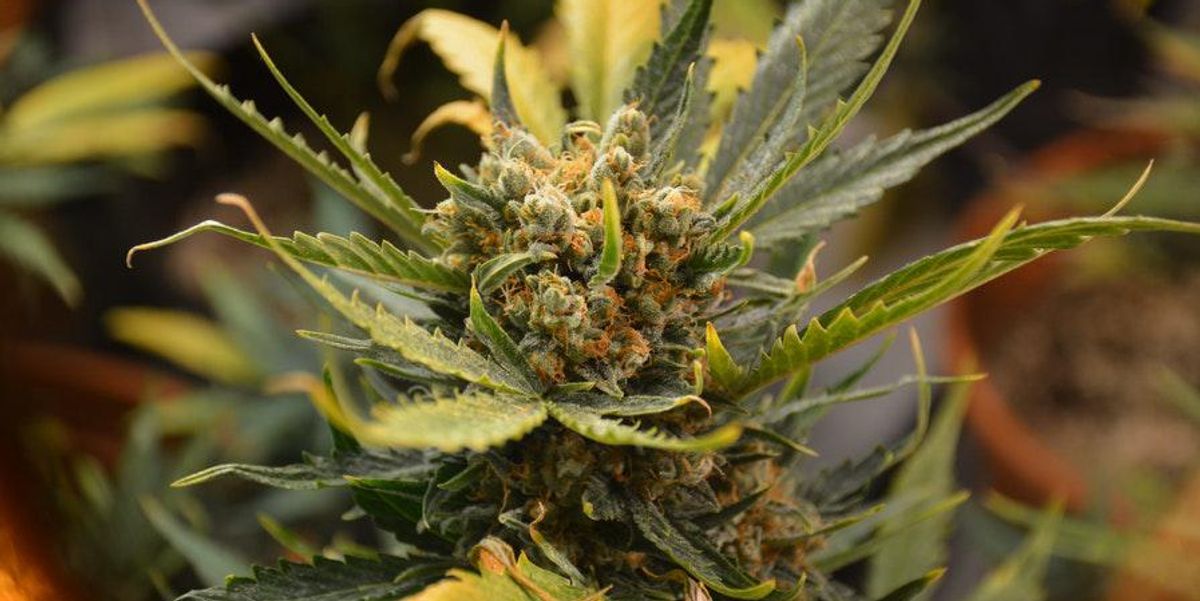
The present dialogue on hashish legalization efforts in Washington means that publicly traded US operators are impatient for cannabis-friendly insurance policies to be enacted.
However in response to a number of monetary consultants, traders ought to assume once more — many US-based hashish operators are thriving amid federal legalization uncertainty within the US, and alter will not be welcome.
Right here the Investing Information Community (INN) takes a more in-depth have a look at the roadmap for multi-state operators (MSOs) within the nation as potential hashish reform makes headlines.
No direct roadmap for US legalization in the intervening time
The US hashish market will be complicated — though many states have opened the doorways to packages that permit the sale of medical or leisure hashish merchandise, the drug stays federally unlawful.
These federal guidelines are impeding the expansion of the trade in a number of methods. For instance, hashish corporations can’t safe banking companies, and publicly traded corporations don’t have a transparent path to US-based traders.
They’ll’t commerce on senior US-based exchanges just like the NASDAQ and the NYSE, and as a substitute should provide their shares on Canadian exchanges just like the Canadian Securities Trade and the NEO Trade. Over-the-counter listings are an possibility, however they don’t have a tendency to draw the larger traders MSOs are in search of in the long term.
It’s simple to see what senior exchanges might do for these corporations, as their Canadian counterparts with no plant-touching companies within the US have seen elevated buying and selling quantity and extra consideration from generalist traders.
Except for these issues, as MSOs have turn out to be greater and larger, present federal coverage has hindered these gamers relating to different essential monetary points similar to tax submitting.
Given these total market situations, it will be simple to assume MSOs are determined to see significant adjustments by the use of wide-ranging US hashish legalization.
Nevertheless, even within the face of all these challenges and disruptions from a scarcity of federal regulation adjustments, is it honest to ask about what MSOs have gained from working throughout this distinctive second in time?
Is the shortage of US legalization higher for MSOs?
Whereas the beforehand mentioned boundaries are vital challenges confronted by MSOs as we speak, these publicly traded corporations have been in a position to develop their companies because of their unusual place.
Charles Taerk, president and CEO of Faircourt Asset Administration, instructed INN he views this era of cloudiness on the trail to legalization as advantageous for hashish operators within the US, as a result of too many traders aren’t listening to the state-by-state development within the nation.
“I would really flip it on its head and say, the longer federal legalization takes, the higher it’s for the incumbent MSOs to proceed to construct their stronghold,” Taerk mentioned. “Whereas everyone’s ready for federal legalization — or laws to permit itemizing and banking — these corporations proceed to develop state by state. They proceed to achieve licenses. They proceed to develop gross sales. They proceed to generate sturdy money stream.”
When requested if he thinks the executives at these corporations share his perspective, Taerk mentioned he believes they see his level. “I feel the MSOs actually see that,” he mentioned. “And you’ll see that additionally in what they’re doing by the current mergers which can be happening.”
Taerk defined that the hashish market will likely be vastly totally different 10 years from now, and MSOs are trying to get forward of these adjustments.
“When that transition occurs — whether or not it is in a yr, two years, three years — at any time when it occurs, from now till then, the incumbents have free rein on who they wish to purchase and the way they wish to develop,” Taerk mentioned. “Which means the most important, the strongest, can proceed to construct their place.”
Legalization would change degree of competitors within the US
Present US market situations make it so the kind of competitors MSOs face is restricted in the intervening time.
“I do not assume there’s anyone trying ahead to Canadian operators coming in and making an attempt to gobble up market share,” Matt Carr, chief traits strategist on the Oxford Membership, instructed INN. “The MSOs are in all probability fairly okay with these worldwide gamers being stored out of the loop in the intervening time.”
Nevertheless it’s not simply the Canadians vying for an entryway into the US.
A number of monetary and enterprise consultants anticipate to see acquisitions from Fortune 500-size corporations balloon in a world by which there are not any federal sanctions for hashish operations within the US. “They’re constructing a moat round themselves, with out competitors from tobacco, alcohol or the patron product teams,” Taerk instructed INN.
Nawan Butt, portfolio supervisor with Goal Investments, mentioned a sweeping change in the best way hashish is regulated on the federal degree within the US would have an effect on the present outlook for MSOs.
“Then it isn’t simply the MSOs competing with one another at that time,” he mentioned. “They are going to unexpectedly compete with (shopper packaged items) and alcohol, and all these industries which can be simply on the facet proper now looking at an trade from the skin.”
The monetary skilled, who co-manages the Goal Marijuana Alternatives Fund (NEO:MJJ), mentioned that from his perspective, MSOs would profit extra from seeing “incremental reform … slightly than complete reform. That’s completely true.”
Banking assist will not essentially imply hashish legalization
Regardless of all of the chatter across the benefits MSOs could also be reaping proper now, one factor is obvious: they’re in want of banking reforms.
“The MSOs would love banking,” Carr mentioned. “I feel banking, to me, continues to be type of like one of many best and best type of issues to go.”
Carr was referring to the favored SAFE Banking Act, an eagerly anticipated piece of laws that might finish the roadblocks hashish MSOs see of their day-to-day operations.
Butt of Goal Investments defined that the SAFE Banking Act can be an enormous assist for MSOs’ operations, however mentioned it will not carry alongside federal legalization.
“The SAFE Act doesn’t help decriminalization or legalization of hashish,” he mentioned. It might cease on the banking guidelines it seeks to alter surrounding hashish companies.
“(MSOs) would actually love to have the ability to proceed to develop and function their firm like a traditional enterprise, as a substitute of this state-by-state vertical with money solely,” Carr mentioned. “It’s a really costly and troublesome to function.”
Butt sees a heavy burden on MSOs by the use of taxes, which gained’t go away till adjustments are made to Part 280E of the Inner Income Code. This ruling opposes unlawful drug companies from performing normal tax actions.
“A few of these corporations are paying as much as 80 p.c efficient tax charges, which is totally ridiculous,” he mentioned. “They’d love to make more cash right here, however the issue is that they find yourself paying lots to the IRS.”
Investor takeaway
Hashish operators within the US have expanded considerably from their humble beginnings.
Because the favorites of quite a few hashish monetary consultants, these corporations are anticipated to proceed rising and are seen snapping up vital shares of essentially the most enticing state markets within the nation.
Shifting ahead, the query turns into: What occurs after vital regulatory adjustments within the US?
Regardless of the burdens that they carry, MSOs have seen some benefits to date, and it is unsure how a federal legalization state of affairs might play out for them.
Don’t neglect to comply with us @INN_Cannabis for real-time updates!
Securities Disclosure: I, Bryan Mc Govern, maintain no direct funding curiosity in any firm talked about on this article.
Editorial Disclosure: The Investing Information Community doesn’t assure the accuracy or thoroughness of the data reported within the interviews it conducts. The opinions expressed in these interviews don’t mirror the opinions of the Investing Information Community and don’t represent funding recommendation. All readers are inspired to carry out their very own due diligence.
From Your Web site Articles
Associated Articles Across the Internet

